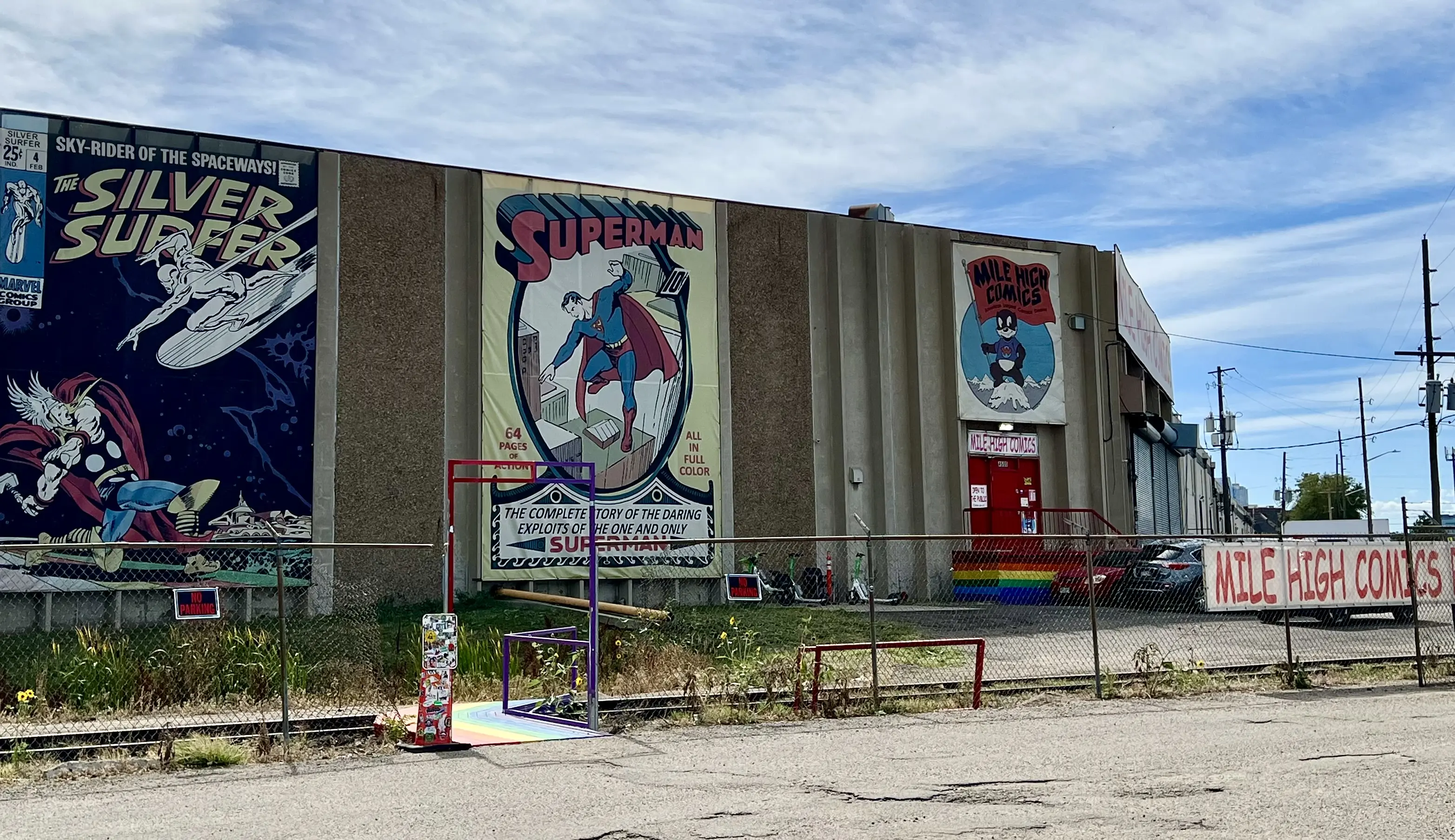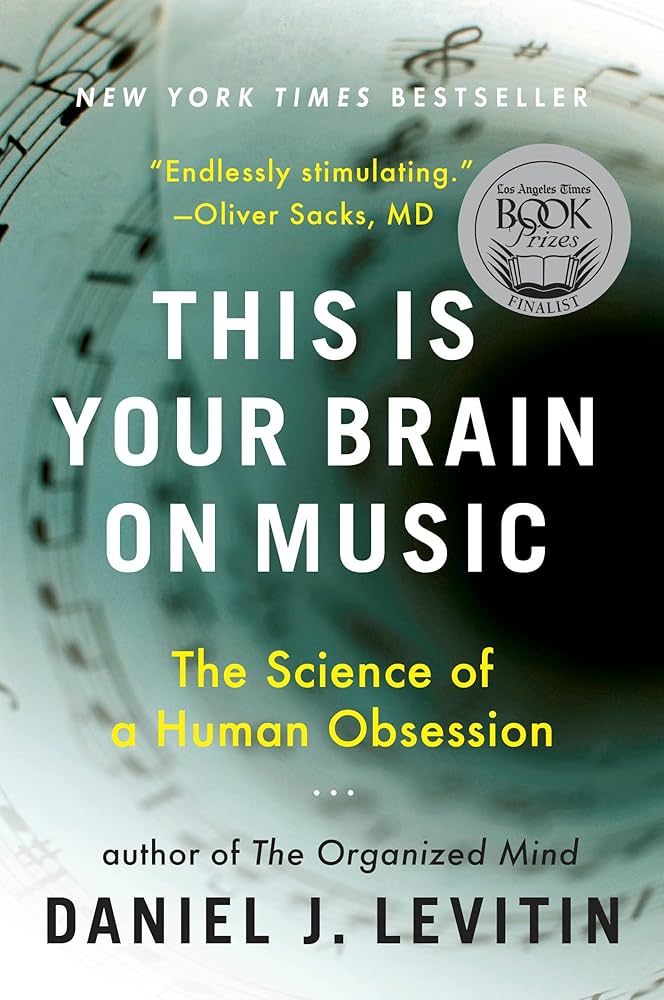I recently trekked to Mile High Comics (MHC) in Denver to find BRZRKR.
For those not familiar, BRZRKR (from Keanu Reeves, Matt Kindt, and Ron Garney) is this wild, hyper-violent series about B, an immortal warrior who has been fighting for 80,000 years but what he really wants is to figure how he can finally die.
That search for BRZRKR started me thinking about whether MHC was the ultimate comic book store in Denver, in the U.S., in the world. I certainly thought it was, but why?
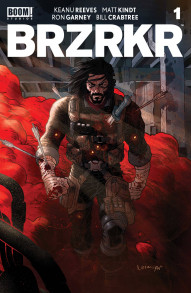
It is fun to discuss, agree, and disagree about what is the “best” of something. The reality is that the conversation is pointless because your best is different from someone else’s best. The best is not based on some objective judgment of that thing, but a subjective assessment shaped by your past experiences, your present context, and your future goals. Realizing this makes conversations about “the best” more enriching.
The point is not to talk someone into agreeing with you—it is to explore why you love what you love.
Understanding your cerebral construction of the best can provide a path to further discovery of new things and, dare I say it, a new best.
Know Why Your Best Is Your Best
If we want to talk seriously about the ultimate or “the best” comic store, we need criteria. What makes one store rise above another? For me, the framework matters more than the score.
When people decide what is “best,” they’re usually weighing three broad questions:
- How well does it fit what I already like? If you have something specific in mind, can you reliably find it? Does the store (or book, or band) match your current tastes and needs?
- How well does it help me discover new things on my own? A great place does not just give you what you expect—it lets you stumble across something surprising, something that stretches your interests just beyond where they already are.
- How well can I get recommendations I can trust? Sometimes discovery needs a nudge. Whether it is staff, friends, or a community, the best experiences are shaped by people whose judgment you value and whose tastes you understand.
These three questions—fit, discovery, and recommendation—form the backbone of how most of us evaluate anything. In the sections that follow, I’ll use them as my criteria for why Mile High Comics feels like “the best” to me.
Everyone Has An Opinion… The Tier List
People love ranking things. The most recent trend is creating “tier lists,” with the top being god-tier. But any review that does not specify its framework, logic, and criteria is dumb—literally dumb. Without a clear ruler to measure by, it is all just noise.
You too can create a tier list at https://tiermaker.com/.

I personally only trust three people in my life to recommend something to me: my daughter, my partner, and my best friend since high school. Why? Because I know their criteria. I know their past experiences—many of which I’ve shared—and I can decode how they arrive at their choices.
Discover some new music from Auricular Impalement such as Server Redirect, There Is No In Between, and Intercelestial.
This is Not Just Opinion, it is Science
Daniel Levitin, in This Is Your Brain on Music: The Science of a Human Obsession (2006), explains that our teenage years are especially critical for shaping lifelong preferences:
“The music we love during our teenage years will probably stay with us for the rest of our lives.”
“Between the ages of twelve and twenty, the brain undergoes many changes, and the music we hear during this period seems to get wired into the structures of our auditory cortex more strongly than the music we encounter later.”
Levitin shows how the brain’s reward systems, memory centers, and emotional circuits are especially active during adolescence, causing the things we discover then—whether music, movies, or comics—to stick with us for life. In other words, when someone says their favorite store or series is the best, they are not just making a casual claim. They are revealing a whole history of experiences that shaped their sense of taste.
My daughter (as of the time of writing this) is a teenager. I met my partner when she was 19 (barely fitting into Levitin’s range), and my best friend and I met when I was 15. These are the humans that were a part of my formative years and continued with me till now.
So let us connect the ultimate comic store and the science of taste.
Fit: A Store Should Allow You to Find What You Already Like
If you go looking for something specific—say, BRZRKR—you should be able to find it or at least know whether the store stocks it. This is where Mile High Comics shines: its catalog is vast, and its organization makes searching worthwhile. Fit matters because sometimes you are not browsing, you are hunting—and the best store meets you there.
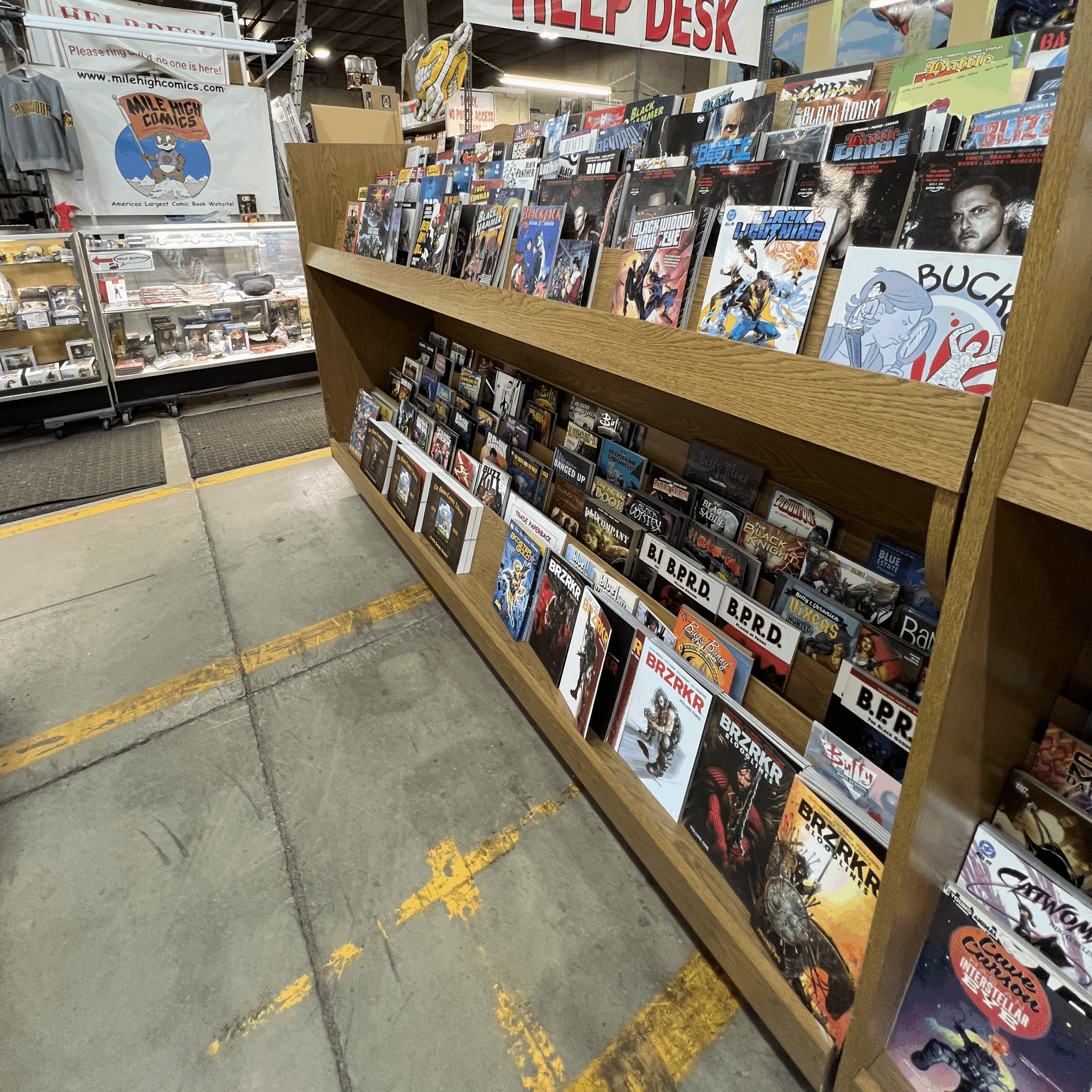
I was able to find BRZRKR via alphabetical racks (see it in the picture above?) that make up the graphic novel and omnibus section. However, you can also ask a store associate to search the MHC inventory for an issue on the “floor” or stored in their onsite backroom storage.
Discovery: A Store Should Encourage Browsing
Browsing is just as important as the ease to find a specific item. As Levitin notes about music, the greatest joy often comes when something new nudges just beyond the boundaries of what you already know. The brain’s pleasure centers love that balance between novelty and familiarity.
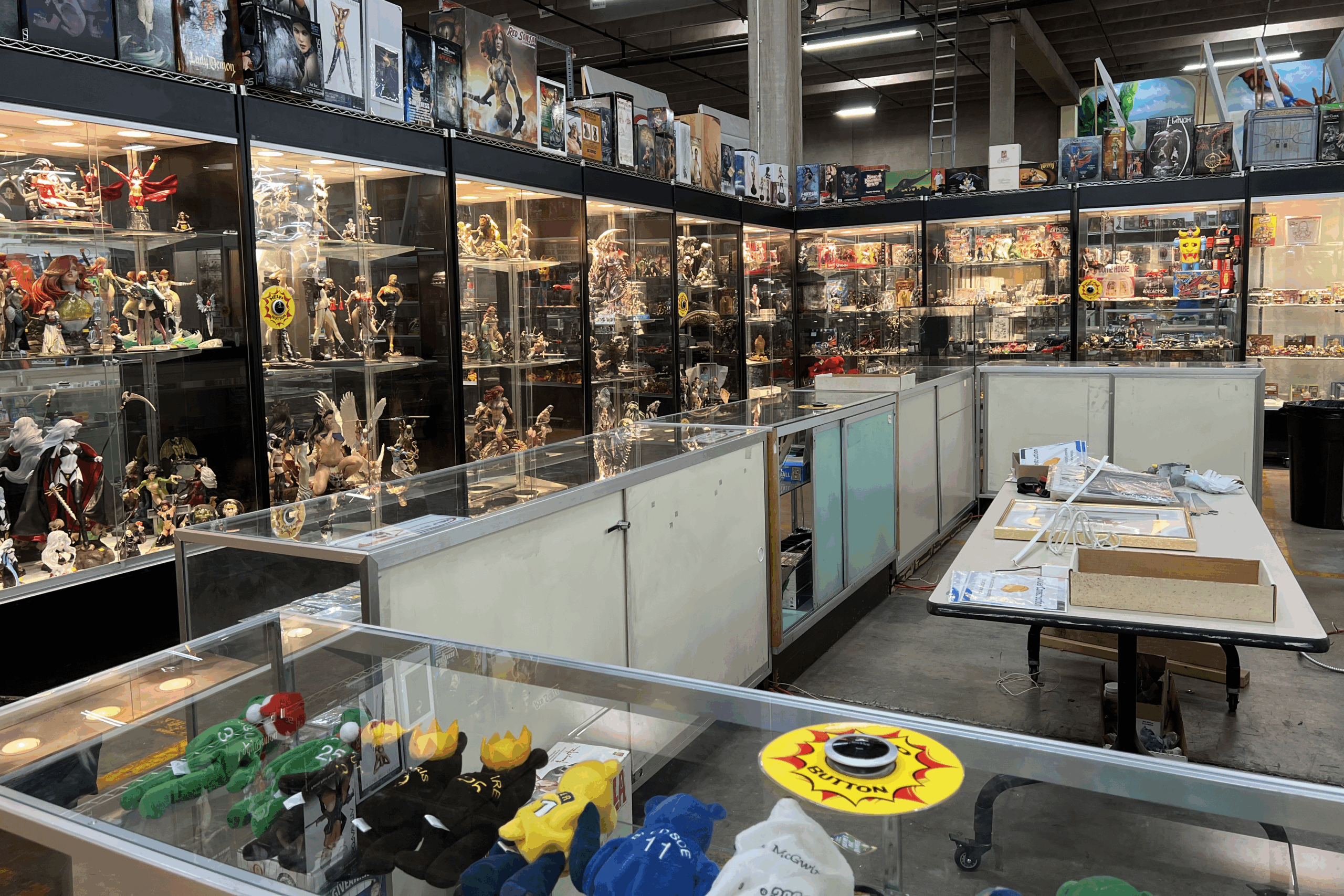
Too many comic stores fail here, hiding their stock away in boxes or organizing shelves in ways that discourage exploration. A great store invites you to wander and stumble. Mile High Comics excels at this—the sprawl itself becomes part of the adventure, turning a search for one comic into a serendipitous discovery of three others you didn’t know you needed.
And there is the opportunity to view toys and collectibles in museum-type display cases. If your “thing” is comics, chances are you also are on the search for related figurines. Or, maybe viewing these cases allows a reverse search for a comic as toys and collectibles are a good way to jar your brain into ideas for new genres, stories, or character universes.
Recommendations: A Store Should Help You Trust New Things
Finally, recommendations are important. A store is not just shelves—it is people. Staff picks, friend suggestions, and random overheard conversations are all part of the magic. Trusted recommendations matter because they carry context: they are rooted in someone else’s framework of taste. These are all elements of a physical, brick-and-mortar store that make it matter.

When someone at a store points you toward a comic you would never have picked up yourself, they are lending you their history. They are your Google search shortcut. And sometimes, those suggestions are the spark that leads to a new lifelong favorite.
For me, Saga was a comic series recommended by someone at a comic book store, albeit a different store in a different state.
Conclusion: Best for Me, Best for You?
So is Mile High Comics the best comic store in Denver, in the U.S., in the world? For me, right now, yes. It fits my current tastes, it lets me browse into unexpected discoveries, and it provides opportunities to benefit from recommendations. It is an event to go. Why should it not be?
Your best may be different from mine. And that is what makes these conversations worth having. Our versions of “the best” are not just lists—they are windows into our histories, our contexts, and the emotional imprints that shaped us. Talking about them is less about winning the argument and more about understanding each other.
In the metal world. discussions about best and epic create community.
So maybe the best comic shop isn’t just the one with the most stock or the lowest prices. Maybe it is the one that helped wire your brain, helps re-wire your brain… the one that still sparks discovery.
Or maybe the best comic book store has a cat named Cambridge…
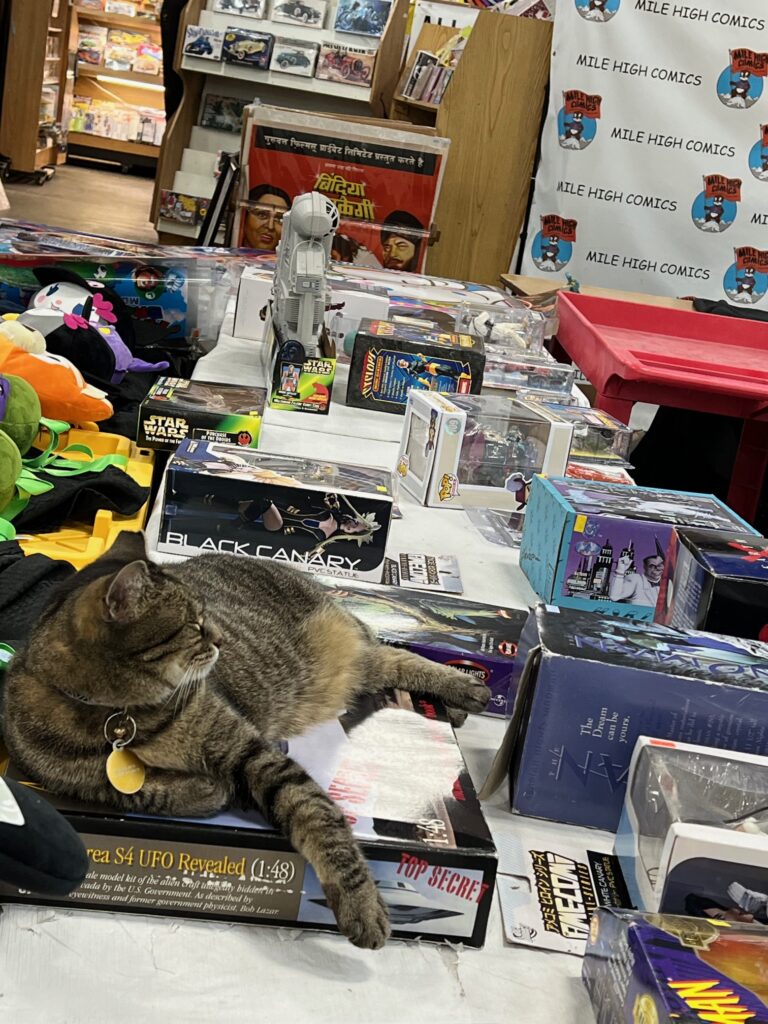
References
- Levitin, Daniel J. This Is Your Brain on Music: The Science of a Human Obsession. New York: Dutton, 2006.
- Reeves, Keanu, Matt Kindt, and Ron Garney. BRZRKR. Boom! Studios, 2021–2022.
- Mile High Comics. Official Website.

